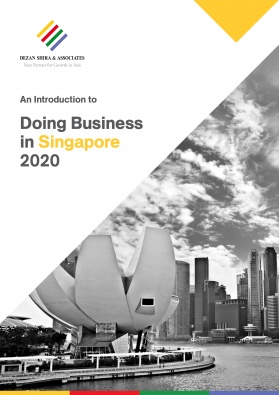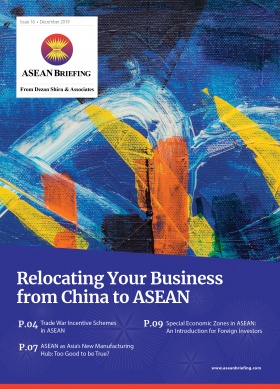Thailand Issues Special Tourist Visas to Help Revive Economy
- Thailand has issued special tourist visas (STV), which will allow international visitors to stay in the country for more than 200 days.
- Visitors will need to adhere to strict health protocols, such as COVID-19 testing upon arrival as well as an initial 14-day quarantine.
- They must also have health insurance coverage of at least US$100,000.
- Prior to the pandemic, the tourism industry brought in annual revenues of more than US$60 billion, accounting for some 20 percent of total GDP.
The Tourism Authority of Thailand (TAT) has issued a special tourist visa (STV) scheme that aims to encourage more foreign tourists and help revive the economy, shattered the pandemic
Applications for the STV are open from October 2020 to September 2021 and visitors can stay in the country for up to 90 days – which can be renewed twice, meaning tourists can stay up to nine months in the country.
To be eligible, tourists will need to undergo a 14-day quarantine and multiple COVID-19 tests upon arrival. In addition, tourists are required to be covered by travel insurance worth US$100,000 and download the local contact tracing app.
The government hopes this scheme will attract close to 1,200 tourists per month, generating some 12 billion baht (US$380 million) into the economy. Given its dependence on tourism and exports, Thailand’s economy is expected to perform the worst in Southeast Asia.
The government issued stimulus packages worth 22.4 billion baht (US$718 million) in late June of this year to boost domestic tourism. The packages provide subsidies for hotel accommodations and airline tickets, targeting over 100 million domestic trips.Despite these incentives, the country is struggling to fill the void left by international tourists who contribute some US$64 billion annually into the economy. This was slashed by 57 percent in the first half of 2020 due to travel restrictions caused by the pandemic.
Travelers should note that Thailand has still imposed a ban on inbound and outbound international commercial flights. The only options for travelers will be chartered or private flights.
How can visitors apply for the special tourist visa?
The applicant must first email their intent to apply for an SVA to a representative agency approved by the TAT. Currently, only the Thailand Longstay Company (TLC) has been approved, although more are expected to be added later.
In the email, the applicant should attach:
- Passport copy;
- Current location and place of residence (city and country); and
- Detail of nearest Thai embassy or consulate.
The TLC will then send the passport details to the Thai Immigration Bureau to check if the applicant has a criminal record. Once this is approved, the applicant will need to pay a service fee of 10,000 baht (US$320), which excludes a seven percent VAT per applicant. The applicant will also have to pay 2,000 baht (US$64) for the visa fee.
Once these fees are paid, the TLC will forward an STV visa application form in which applicants will have to indicate their Alternative State Quarantine (ASQ) or Alternative Local State Quarantine (ALSQ) accommodations. They will stay in these specific accommodations for 14 days upon arrival and all costs will be covered by the traveler.
There are 74 such hotels nationwide with 69 located in Bangkok and five in Burium, Chonburi, and Phuket.
To complete the application, visitors must showcase their flight details, post-quarantine accommodations, and purchase medical insurance with a minimum coverage of US$100,000. Once these documents have been submitted, the applicant can then collect a Certificate of Entry (CoE) at their nearest Thai embassy or consulate. Visitors must obtain a fit-to-travel health certificate as well as a COVID-19 free certificate, issued no longer than 72 hours prior to travel.
What happens upon arrival in Thailand?
Upon arrival in Thailand, the visitor will undergo another COVID-19 test; if they test negative, they can proceed to their ASQ or ALSQ accommodation for 14 days. Once this is complete, they can proceed with their travel itinerary.
An expensive scheme for little gain
The STV scheme will be cost-effective for year-long retirees or foreign spouses of Thai nationals looking to enter the country. However, the fact that travelers will have to organize their own flights via charter or private could dampen interest as not only is this expensive but problems would arise when tourists want to depart at different times.
If the government starts to allow commercial flights, then their revenue targets could be achievable. Yet, in doing so, businesses are also susceptible to a second wave of the pandemic. Thailand has managed to sustain the spread of the virus and has among the lowest numbers of COVID-19 infections and deaths in the region.
About Us
ASEAN Briefing is produced by Dezan Shira & Associates. The firm assists foreign investors throughout Asia and maintains offices throughout ASEAN, including in Singapore, Hanoi, Ho Chi Minh City and Jakarta. Please contact us at asia@dezshira.com or visit our website at www.dezshira.com








